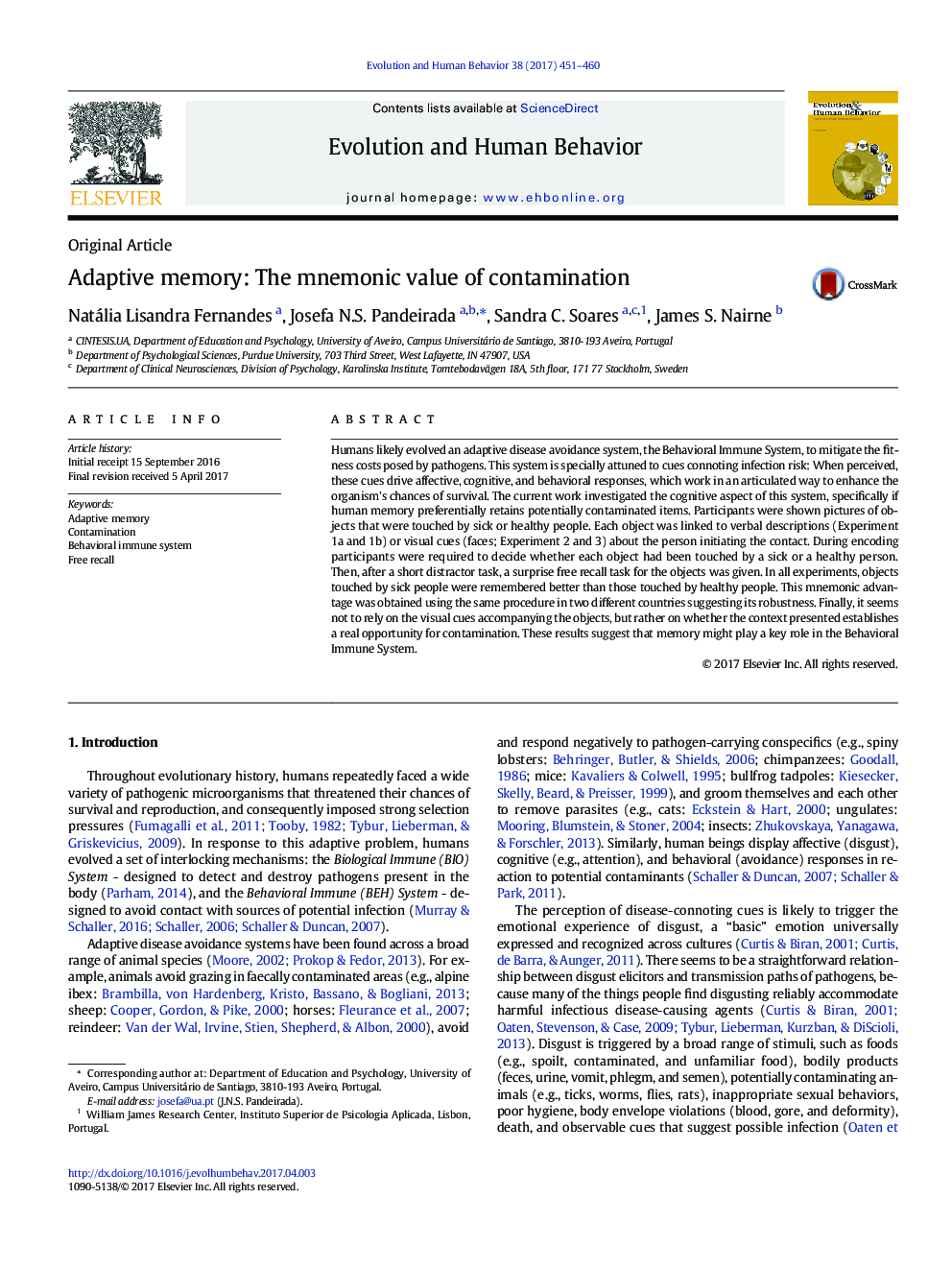| کد مقاله | کد نشریه | سال انتشار | مقاله انگلیسی | نسخه تمام متن |
|---|---|---|---|---|
| 5044810 | 1370634 | 2017 | 10 صفحه PDF | دانلود رایگان |
Humans likely evolved an adaptive disease avoidance system, the Behavioral Immune System, to mitigate the fitness costs posed by pathogens. This system is specially attuned to cues connoting infection risk: When perceived, these cues drive affective, cognitive, and behavioral responses, which work in an articulated way to enhance the organism's chances of survival. The current work investigated the cognitive aspect of this system, specifically if human memory preferentially retains potentially contaminated items. Participants were shown pictures of objects that were touched by sick or healthy people. Each object was linked to verbal descriptions (Experiment 1a and 1b) or visual cues (faces; Experiment 2 and 3) about the person initiating the contact. During encoding participants were required to decide whether each object had been touched by a sick or a healthy person. Then, after a short distractor task, a surprise free recall task for the objects was given. In all experiments, objects touched by sick people were remembered better than those touched by healthy people. This mnemonic advantage was obtained using the same procedure in two different countries suggesting its robustness. Finally, it seems not to rely on the visual cues accompanying the objects, but rather on whether the context presented establishes a real opportunity for contamination. These results suggest that memory might play a key role in the Behavioral Immune System.
Journal: Evolution and Human Behavior - Volume 38, Issue 4, July 2017, Pages 451-460
